Your search “Keep%20the%20death%20penalty%abolished%20in%20the%20ePhilippfines%20e ”
Article(s)
Campaigners and political leaders unite against the death penalty
on 24 February 2010
Representatives from 56 abolitionist and retentionist countries attended the opening session of the World Congress Against the Death Penalty in Geneva.
2010
Belarus
France
Italy
Mongolia
Norway
Qatar
Senegal
Spain
Switzerland
Viet Nam
Article(s)
Benin on track to achieve abolition
on 7 February 2010
Benin’s President Thomas Yayi Boni, one of the World Congress’s guests, has asked the parliament to enshrine the abolition of the death penalty in the constitution. Justice Minister Victor Tokpanou details Benin’s path to abolition.
2010
Benin
Benin
Public Opinion

Helping the World Achieve a Moratorium on Executions
on 20 December 2022
In 2007, the World Coalition made one of the most important decisions in its young history: to support the Resolution of the United Nations General Assembly for a moratorium on the use of the death penalty as a step towards universal abolition. A moratorium is temporary suspension of executions and, more rarely, of death sentences. […]
2022
Moratorium
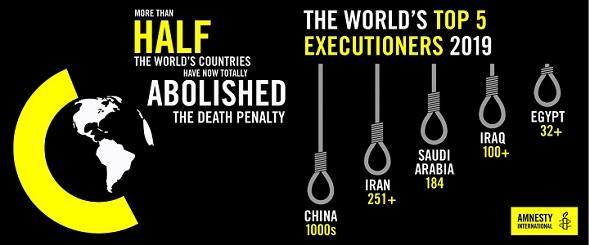
Article(s)
Death penalty in 2019: Facts and figures
By Amnesty International, on 22 April 2020
Amnesty International published its annual report on death sentences and executions worldwide on 21 April 2020. It showed that the number of known executions decreased slightly on the 2018 total, reaching the lowest figure in more than 10 years, despite Iraq nearly doubling its tally and Saudi Arabia having its highest executions total in any given year.
2020
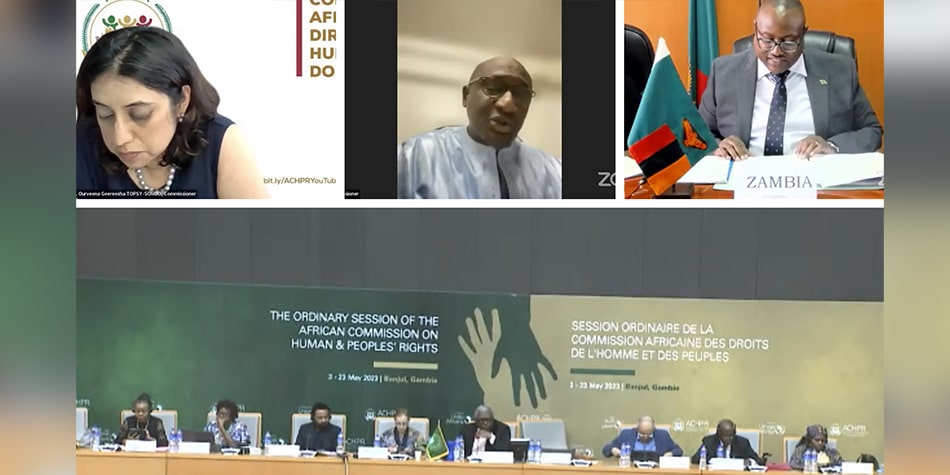
Article(s)
75th Ordinary Session of the African Commission of Human and Peoples’ Rights
By Wendy Adouki, World Coalition Against the Death Penalty, on 15 August 2023
From 3rd to 23rd May 2023, the African Commission on Human and Peoples’ Rights (ACHPR) held its 75th Ordinary Session for the first time in a hybrid format with participants both attending online and in person in Banjul, the Gambia, seat of the ACHPR.
2023
Trend Towards Abolition
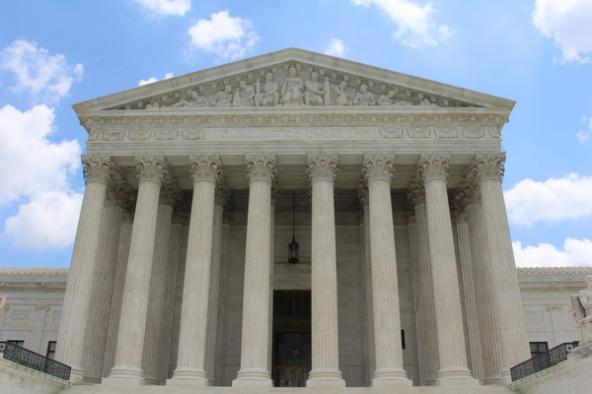
Article(s)
US Federal Executions Resume
By Louis Linel, on 28 July 2020
It has been 17 years since the United States decided on a de facto moratorium on federal executions, which can be carried out only for certain federal criminal offences. This moratorium, however, ended in July.
2020
Moratorium
United States

21st World Day Against the Death Penalty – The death penalty: An irreversible torture
on 12 June 2023
2023
Cruel, Inhuman and Degrading Treatment and Punishment
Death Row Conditions
Article(s)
30 countries gather in Rome to oppose capital punishment
on 21 May 2010
17 ministers and numerous experts met in Rome on May 17 to discuss crime-busting policies that reject the death penalty. Representatives for the Republic of Congo and Burkina Faso pledged their support for abolition.
2010
Italy

Article(s)
Marc Bossuyt: “Countries that have not signed up to the Protocol should feel isolated”
By Pierre Désert, on 27 June 2008
Marc Bossuyt was UN Special Rapporteur for drawing up the Second Optional Protocol to the International Covenant on Civil and Political Rights. He is now president of Belgium’s Constitutional Court.
2008

Article(s)
Second Optional Protocol: Frequently Asked Questions
By Pierre Desert, on 27 June 2008
What is it? How is it implemented? You will find the answers to the most frequently asked questions about the Second Optional Protocol below.

Article(s)
Does one year of “double zero” mean the death penalty has been repealed? How close is Taiwan to abolishing capital punishment?
By Lin Hsin-yi, Executive Director of the Taiwan Alliance to End the Death Penalty, on 28 April 2022
After the end of the last workday of 2021, it became clear that no one would be sentenced to death or executed that year – the first time ever that Taiwan has experienced “double-zero.”
2022
Taiwan
Document(s)
A/HRC/51/7 – Advance Edited Version – Question of the death penalty
By Office of the High Commissioner for Human Rights (OHCHR), on 26 July 2022
2022
United Nations report
More details See the document
Pursuant to Human Rights Council decision 18/117, the present report is submitted to update previous reports on the question of the death penalty. In the report, the Secretary-General reaffirms the trend towards the universal abolition of the death penalty and highlights initiatives limiting its use and implementing the safeguards guaranteeing the protection of the rights of those facing this severe penalty. A minority of States continued to use the death penalty. Pursuant to Council resolution 22/11, the report also includes information on the human rights of children of parents sentenced to the death penalty or executed.
- Document type United Nations report
Document(s)
Death Penalty in Liberia. When will it be abolished?
By FIACAT, on 1 January 2019
2019
Arguments against the death penalty
More details See the document
The FIACAT and ACAT Liberia organized an awareness-raisingworkshop on 17 and 18 September 2019 in Monrovia (Liberia) for 30 participants: Muslim and Christian religious leaders, traditional chiefs, members of civil society organizations, journalists, members of the Independent National Commissionon Human Rights (INCHR) and parliamentarians. This workshop resulted in the production of this publication to raise awareness among opinion leaders on the abolition of the death penalty in Liberia, considering the specific characteristicsand needs of the country.
- Document type Arguments against the death penalty
Document(s)
Holdouts in the South Pacific: Explaining Death Penalty Retention in Papua New Guinea and Tonga
By Daniel Pascoe and Andrew Novak, on 1 September 2022
2022
Academic report
Papua New Guinea
Tonga
More details See the document
The South Pacific forms a cohesive region with broadly similar cultural attributes, legal systems and colonial histories. A comparative analysis starts from the assumption that these countries should also have similar criminal justice policies. However, until 2022, both Papua New Guinea and Tonga were retentionist death penalty outliers in the South Pacific, a region home to seven other fully abolitionist members of the United Nations. In this article, we use the comparative method to explain why Papua New Guinea and Tonga have pursued a different death penalty trajectory than their regional neighbours. Eschewing the traditional social science explanations for death penalty retention, we suggest two novel explanations for ongoing retention in Papua New Guinea and Tonga: the law and order crisis in the former and the traditionally powerful monarchy in the latter.
This article was first published in Crime Justice Journal: https://www.crimejusticejournal.com/issue/view/119
- Document type Academic report
- Countries list Papua New Guinea / Tonga
Document(s)
Taiwan: Amicus Curiae submission by Amnesty International and the World Coalition Against the Death Penalty to the Constitutional Court
By Amnesty International, on 23 April 2024
2024
NGO report
Taiwan
zh-hantMore details See the document
Published on April 8, 2024.
As the Constitutional Court of the Republic of China considers a challenge to the constitutionality of the death penalty, Amnesty International Taiwan and the World Coalition Against the Death Penalty submitted a joint amicus curiae intervention, to ensure the protection of the rights of all those under sentence of death. The amicus interveners argue that the use of the death penalty in the Republic of China constitutes a violation of human rights as guaranteed under the Constitution and international law and standards; and sets the country against the global trend, which remains overwhelmingly in favour of abolition.
- Document type NGO report
- Countries list Taiwan
- Available languages 憲法法庭法庭之友意見書 主案案號:111年度憲民字第904052號 法庭之友:國際特赦組織台灣分會 均詳委任狀 代 表 人:林綉娟 理事長 代 理 人:陳瑋珊 律師 均詳委任狀 均詳委任狀
Document(s)
Government Misconduct and Convicting the Innocent, The Role of Prosecutors, Police and Other Law Enforcement
By Samuel R. Gross, Maurice J. Possley, Kaitlin Jackson Roll, Klara Huber Stephens , on 20 July 2022
2022
Academic report
Innocence
More details See the document
This is a report about the role of official misconduct in the conviction of innocent people. We
discuss cases that are listed in the National Registry of Exonerations, an ongoing online archive
that includes all known exonerations in the United States since 1989, 2,663 as of this writing.
This Report describes official misconduct in the first 2,400 exonerations in the Registry, those
posted by February 27, 2019
- Document type Academic report
- Themes list Innocence
Document(s)
“No One Believed Me”: A Global Overview of Women Facing the Death Penalty for Drug Offenses
on 5 October 2021
2021
NGO report
Drug Offenses
Women
frMore details See the document
“No one believed me” is a quote from Merri Utami, who was sentenced to death for drug trafficking in Indonesia in 2002. Her quote reflects the injustices faced by women accused of capital drug offenses around the world: many decision-makers disbelieve women’s plausible innocence claims or discount the effects of relationships and economic instability on women’s decisions to traffic drugs.
Document(s)
How to Work with Parliamentarians for the Abolition of the Death Penalty
By World Coalition Against the Death Penalty, on 7 October 2021
2021
Working with...
World Coalition
Moratorium
Public Opinion
frMore details Download [ pdf - 18114 Ko ]
This how-to guide, elaborated with Parliamentarians for Global Action with highlights coming from the African continent, is specifically designed for the use of abolitionist civil society groups who want to work with parliamentarians for the abolition of the death penalty.
- Document type Working with... / World Coalition
- Themes list Moratorium / Public Opinion
- Available languages Comment travailler avec les parlementaires pour l'abolition de la peine de mort ?
Document(s)
World Coalition Activity Report 2022
By World Coalition Against the Death Penalty, on 22 August 2023
2023
World Coalition
Trend Towards Abolition
frMore details Download [ pdf - 323 Ko ]
- Document type World Coalition
- Themes list Trend Towards Abolition
- Available languages Rapport d'Activité de la Coalition Mondiale 2022
Document(s)
Felony Murder: An On-Ramp for Extreme Sentencing
By The Sentencing Project, Fair and Just Prosecution, on 23 March 2022
2022
NGO report
United States
More details See the document
Although other countries have largely rejected the felony murder doctrine, 48 states, the District of Columbia, and the federal government still use these laws. Felony murder laws compel harsh decades-long – or even life – sentences even when the individual charged did not directly cause or intend the loss of life.
This report evaluates the legal and empirical foundation, and failings, of the felony murder rule, profiles impacted individuals, and highlights recent reform efforts in 10 jurisdictions. Key findings include:
1. Felony murder laws widen the net of extreme sentencing and are counterproductive to public safety.
2. Felony murder laws have particularly adverse impacts on people of color, young people, and women.
3. Existing reforms must be expanded to achieve justice.
- Document type NGO report
- Countries list United States
Document(s)
Capital punishment and implementation of the safeguards guaranteeing protection of the rights of those facing the death penalty
By United Nations , on 26 May 2021
2021
United Nations report
aresfrruzh-hantMore details See the document
Summary
In its resolution 1745 (LIV) of 16 May 1973, the Economic and Social Council invited the Secretary-General to submit to it, at five-year intervals starting from 1975, periodic updated and analytical reports on capital punishment. The Council, in its resolution 1995/57 of 28 July 1995, recommended that the quinquennial reports of the Secretary-General continue to cover also the implementation of the safeguards guaranteeing protection of the rights of those facing the death penalty.
In the same resolution, the Council requested the Secretary-General, in preparing the quinquennial report, to draw on all available data, including current criminological research. The present report, which is the tenth quinquennial report, contains a review of the use of and trends in capital punishment, including the implementa tion of the safeguards during the period 2014–2018.
In accordance with resolutions 1745 (LIV) and 1990/51, of 24 July 1990, of the Economic and Social Council, as well as its decision 2005/247 of 22 July 2005, the present report is submitted to the Council at its substantive session of 2020, and will also be before the Commission on Crime Prevention and Criminal Justice at its twenty-ninth session and the Human Rights Council at its forty-fourth regular session.
The report on the 2014–2018 quinquennium confirms the trend documented in previous reports towards abolition and restriction of the use of capital punishment in most countries. The number of States that have abolished the death penalty in law and in practice continued to grow. This is reflected in the increased number of States bound by treaty obligations not to implement the death penalty. The quinquennium also witnessed some years of dramatic increases in the number of executions, which were carried out by a small number of States. The situation stabilized at the end of the survey period, and the number of recorded executions in the final year, 2018, was the lowest in many years. The safeguards guaranteeing the protection of the rights of those facing the death penalty apply to States that retain capital punishment. It is of concern, however, that the death penalty continued to be imposed on persons below 18 years of age at the time of commission of the offence, and that death sentences were imposed in cases where the “most serious crimes” standard was not met and in cases of trials that did not comply with international standards.
- Document type United Nations report
- Available languages عقوبة اإلعدام وتنفيذ الضمانات التي تكفل حماية حقوق من يواجهون عقوبة اإلعدامLa pena capital y la aplicación de las salvaguardias para garantizar la protección de los derechos de las personas condenadas a la pena de muertePeine capitale et application des garanties pour la protection des droits des personnes passibles de la peine de mortСмертная казнь и применение мер, гарантирующих защиту прав тех, кому грозит смертная казнь死刑和保护死刑犯权利的保障措施的执行情况
Document(s)
The Road to Abolition?: The Future of Capital Punishment in the United States
By Charles J. Ogletree and Austin Sarat, on 24 August 2023
2023
Book
United States
More details See the document
At the start of the twenty-first century, America is in the midst of a profound national reconsideration of the death penalty. There has been a dramatic decline in the number of people being sentenced to death as well as executed, exonerations have become common, and the number of states abolishing the death penalty is on the rise. The essays featured in The Road to Abolition? track this shift in attitudes toward capital punishment, and consider whether or not the death penalty will ever be abolished in America.The interdisciplinary group of experts gathered by Charles J. Ogletree Jr., and Austin Sarat ask and attempt to answer the hard questions that need to be addressed if the death penalty is to be abolished. Will the death penalty end only to be replaced with life in prison without parole? Will life without the possibility of parole become, in essence, the new death penalty? For abolitionists, might that be a pyrrhic victory? The contributors discuss how the death penalty might be abolished, with particular emphasis on the current debate over lethal injection as a case study on why and how the elimination of certain forms of execution might provide a model for the larger abolition of the death penalty.
- Document type Book
- Countries list United States
Document(s)
Poster World Day 2005
By World Coalition against the death penalty , on 10 October 2005
2005
Campaigning
Trend Towards Abolition
frMore details Download [ pdf - 46 Ko ]
To date, 12 African countries have abolished the death penalty for all crimes;
20 retain the death penalty but are no longer carrying out executions; and 21 retain and use
the death penalty. The World Coalition against the death penalty has decided to devote the
World Day 2005 to a campaign to encourage all African countries to abolish capital
punishment permanently.
- Document type Campaigning
- Themes list Trend Towards Abolition
- Available languages Affiche journée mondiale 2005
Document(s)
Detailed Factsheet – World Day 2022
By the World Coalition Against the Death Penalty, on 4 July 2022
2022
World Coalition
frMore details Download [ pdf - 893 Ko ]
Detailed factsheet on torture and the death penalty, for the 20th World Day Against the Death Penalty (2022).
- Document type World Coalition
- Available languages Fiche détaillée - Journée mondiale 2022
Document(s)
World Psychiatric Association position statement mental health and the death penalty
By World Psychiatric Association, on 30 November 2023
2023
Arguments against the death penalty
Fair Trial
Intellectual Disability
zh-hantMore details See the document
International law and laws of various countries prohibit the imposition of the death penalty on persons
with mental illness or developmental and intellectual disabilities due to the special barriers faced by
them in defending themselves; their limited moral culpability; and their diminished ability to
understand the nature and reason for their execution. However, due to lack of accommodations in
criminal proceedings and legal safeguards, persons with mental illness, developmental and intellectual
disabilities are at a greater risk of being sentenced to death and having their fair trial rights denied.
Authors:
Maitreyi Misra, Director (Mental Health and Criminal Justice), Project 39A, National Law University
Delhi.
Namrata Sinha, Research Associate (Mental Health and Criminal Justice), Project 39A, National Law
University Delhi.
Neeraj Gill, Professor, Health Research Institute, University of Canberra and Griffith University,
School of Medicine, Griffith University, Gold Coast, Australia.
Soumitra Pathare, Consultant Psychiatrist, Director, Centre for Mental Health Law and Policy, ILS
Law College, Pune.
Afzal Javed, President, World Psychiatric Association.
- Document type Arguments against the death penalty
- Themes list Fair Trial / Intellectual Disability
- Available languages 世界精神醫學會針對精神健康與死刑之立場聲明
Document(s)
Special issue: a decade-long review of the death penalty for drug offences
By Harm Reduction International, on 7 May 2024
2024
NGO report
Drug Offenses
More details See the document
This report builds on the pioneering work HRI has been doing since its first ‘The Death Penalty for Drug Offences: Global Overview (‘Global Overview’) in 2007. It analyses how the landscape of the death penalty for drug offences has shifted in the last decade, looking at the main trends regarding people on death row, death sentences and executions for drug offences, as well as key developments at national and international level in the period between 2014 and 2023.
- Document type NGO report
- Themes list Drug Offenses
Document(s)
The Death Penalty in 2021: Year End Report
By Death Penalty Information Center, on 14 January 2022
2022
NGO report
United States
More details See the document
The death penalty in the USA in 2021 was defined by two competing forces: the continuing long-term erosion of capital punishment across most of the country, and extreme conduct by a dwindling number of outlier jurisdictions to continue to pursue death sentences and executions.
- Document type NGO report
- Countries list United States
Document(s)
Zimbabwe – Universal Periodic Review – Death Penalty – July 2021
By Eleos Justice, Monash University, on 15 July 2021
2021
NGO report
World Coalition
Zimbabwe
More details Download [ pdf - 271 Ko ]
This report addresses Zimbabwe’s compliance with its human rights obligations with respect to its use of the death penalty. The United Nations considers Zimbabwe a de facto abolitionist country. It has not carried out any executions since 2005. Courts, however, continue to sentence individuals to death, with 88 people currently on death row as of December 2020, after 8 sentences were commuted in April 2020. The new Zimbabwean Constitution (the “2013 Constitution”) has replaced the mandatory death penalty with a discretionary sentence for the crime of murder committed under aggravating circumstances. The 2013 Constitution further outlaws the imposition of the death penalty on women, men over the age of 70, and men under the age of 21 at the time the offence was committed. In its 2016 Universal Periodic Review, Zimbabwe noted all recommendations related to the death penalty, partly on the ground that Zimbabwean public opinion did not support abolition of death penalty. Since 2016, developments demonstrate a more positive attitude among the public and opinion leaders toward further reform and the abolition of death penalty.
This report focuses on various issues concerning the death penalty and related international human rights instruments, and on conditions of detention and acts of torture and ill treatment of people in detention. Specifically, this report recommends that Zimbabwe abolish the death penalty, improve detention conditions, ratify relevant human rights treaties, and increase resources dedicated to improving the justice system.
- Document type NGO report / World Coalition
- Countries list Zimbabwe
Document(s)
Blaming it on the past: Usages of the Middle Ages in contemporary discourses of the death penalty in England
By Death Penalty Research Unit (DPRU), University of Oxford, on 5 February 2024
2024
Academic Article
United Kingdom
More details See the document
Published in December 2023.
In popular, intellectual and political culture, the Middle Ages are intrinsically tied to violent images of public executions. To historians of the medieval period, this temporal attachment of the death penalty to a remote period is puzzling, especially since it is still widely enforced in the world today and was only relatively recently abolished in Europe. Capital punishment is not only a part of history, but a modern-day reality. Why, therefore, do we pin this punishment to the Middle Ages? This paper aims to analyse the discourses surrounding the usage of the Middle Ages in modern discussions on the death penalty, and to clarify medieval practices of capital punishment, showing how remote they are from our contemporary understanding
- Document type Academic Article
- Countries list United Kingdom
Document(s)
2021 OHCHR Report on Deterrence: High-level panel discussion on the question of the death penalty
By Office of the High Commissioner for Human Rights (OHCHR), on 14 January 2022
2022
United Nations report
Public Opinion
aresfrruzh-hantMore details See the document
The present report is submitted pursuant to Human Rights Council resolutions 26/2 and 42/24. It provides a summary of the high-level panel discussion on the question of the death penalty held on 23 February 2021 at the forty-sixth session of the Council. The panel discussion addressed the human rights violations related to the use of the death penalty, in particular with respect to whether the use of the death penalty has a deterrent effect on crime rates.
- Document type United Nations report
- Themes list Public Opinion
- Available languages حلقة نقاش رف عة المستوى بشأن مسألة عقوبة الإعدامInforme de la OACDH 2021 sobre el efecto disuasorio : Mesa redonda de alto nivel sobre la cuestión de la pena de muerteRapport HCDH 2021 sur l'effet dissuasif : Réunion-débat de haut niveau sur la question de la peine de mortОбсуждение в рамках дискуссионной группы высокого уровня вопроса о смертной казни,способствует ли ее применение сдерживанию преступности2021年联合国威慑效应报告 - 关于死刑问题的高级别专题小组讨论会
Document(s)
Efforts towards abolition of the death penalty: Challenges and prospects
By Death Penalty Research Unit (DPRU), University of Oxford, on 5 February 2024
2024
Academic Article
Trend Towards Abolition
More details See the document
Published in December 2023.
This paper reflects on the role of international human rights treaties in promoting universal abolition and progressive restriction of the death penalty. It suggests that over the past quarter of a century a ‘new human rights dynamic’ has aimed to generate universal acceptance that however it is administered, the death penalty violates the human rights of all citizens exposed to it. Nevertheless, defences of capital punishment based on principles of national sovereignty are engrained in some parts of the world, particularly in Asia and the Middle East. The human rights project struggles to make inroads into such jurisdictions where political will is opposed to abolition, and trenchant protection of sovereignty threatens the very universality of these rights.
- Document type Academic Article
- Themes list Trend Towards Abolition
Document(s)
A/HRC/48/L.17/Rev.1 Resolution adopted by the Human Rights Council
on 2 June 2021
2021
International law - United Nations
aresfrruzh-hantMore details See the document
- Document type International law - United Nations
- Available languages A/HRC/48/L.17/Rev.1 قرار اعتمده جملس حقوق اإلنسايفA/HRC/48/L.17/Rev.1 Resolución aprobada por el Consejo de DerechosA/HRC/48/L.17/Rev.1 Résolution adoptée par le Conseil des droits de l’hommeA/HRC/48/L.17/Rev.1 Резолюция, принятая Советом по правам человекаA/HRC/48/L.17/Rev.1 人权理事会 月 日通过的决议
Document(s)
FHRI and PRI submission to the UN Sec-Gen report on the status of the death penalty in East Africa – Kenya and Uganda April 2012
By Penal Reform International, on 8 September 2020
2020
NGO report
Kenya
More details See the document
To date, Kenya and Uganda have not signed the Second Optional Protocol to the International Covenant on Civil and Political Rights and are not party to any international or regional treaty prohibiting the death penalty. While Kenya abstained from voting in the 2010 UN General Assembly moratorium resolution, Uganda voted against it and signed the note verbale of issociation.
- Document type NGO report
- Countries list Kenya
- Themes list Cruel, Inhuman and Degrading Treatment and Punishment, Discrimination, Country/Regional profiles,
Article(s)
167 Ugandan death row inmates saved from gallows
on 19 September 2010
Recent figures show that a January ruling by the Ugandan supreme court making it illegal to keep people on death row for more than three years has saved 167 lives.
2010
Cruel, Inhuman and Degrading Treatment and Punishment
Uganda
Document(s)
Killing in the Name of God: State-sanctioned Violations of Religious Freedom
By Eleos Justice, Monash University, on 10 November 2021
2021
Academic report
Brunei Darussalam
Iran (Islamic Republic of)
Maldives
Mauritania
Nigeria
Qatar
Saudi Arabia
Somalia
United Arab Emirates
Yemen
More details See the document
As of 2020, blasphemy was formally criminalised in some 84 countries. As many as 21 countries criminalised apostasy as of 2019. The legal penalties for such offences range from fines to imprisonment to corporal punishment—and in at least 12 countries, the death penalty.
This report examines the extent to which States commit, or are complicit in, killings that violate religious freedom. Focussing on the 12 States in which offences against religion are lawfully punishable by death, we examine four different types of State-sanctioned killings on the basis of religious offence (apostasy, blasphemy, or alike) or affiliation (most commonly, membership of a religious minority): judicial executions, extrajudicial killings, killings by civilians, and killings by extremist groups. We explore the relationship between the retention of the death penalty for religious offences and other forms of State-sanctioned killings motivated by alleged religious offending or by religious identity.
- Document type Academic report
- Countries list Brunei Darussalam / Iran (Islamic Republic of) / Maldives / Mauritania / Nigeria / Qatar / Saudi Arabia / Somalia / United Arab Emirates / Yemen
Document(s)
Abolitionnist portrait
By World Coalition against the death penalty , on 10 October 2004
2004
Campaigning
Trend Towards Abolition
frMore details See the document
Abolitionnist portrait
- Document type Campaigning
- Themes list Trend Towards Abolition
- Available languages Portrait d'abolitionnistes
Document(s)
Educational guide 2009
By World Coalition against the death penalty , on 10 October 2009
2009
Campaigning
Trend Towards Abolition
esfrruzh-hantMore details Download [ pdf - 536 Ko ]
With this Educational Guide, the World Coalition
Against the Death Penalty is launching a collaborative
initiative which aims to improve the contributions of all.
This guide will be regularly supplemented by new infor-
mation and themes. It will also be frequently updated
on the Coalition’s website (www.worldcoalition.org).
On behalf of the members of the World Coalition in
more than thirty countries across the world, we thank
you for your support.
- Document type Campaigning
- Themes list Trend Towards Abolition
- Available languages Guía pedagógica Jornada mundial 2009Guide pédagogique 2009Руководство по обучению организации мероприятий по случаю Всемирного дня борьбы против смертной казни2009 年世界反死刑日
Document(s)
Abolition of the Death Penalty in the Eastern Caribbean and Barbados
on 15 December 2020
2020
Lobbying
Barbados
Trend Towards Abolition
More details Download [ pdf - 2611 Ko ]
Greater Caribbean for Life has launched its educational toolkit to assist activists and organisations as they work toward abolishing the death penalty in the Greater Caribbean. The production of this toolkit forms part of GCL’s activities under its EU partnered project to educate on death penalty abolition in the Eastern Caribbean and Barbados.
The launch of the toolkit is timely as a few of these target countries recently voted against adopting the UN Moratorium on the use of the death penalty and countries that had previously chosen to abstain have now firmly voted against the resolution.
GCL members condemn the rise of violent crime in our region and express solidarity and compassion with the victims of crime, however, we reject the notion that capital punishment will act as a deterrent or foster respect for life in our communities.
It is our hope that this toolkit will assist in promoting respect for the right to life for all human beings in the Caribbean region.
- Document type Lobbying
- Countries list Barbados
- Themes list Trend Towards Abolition
Document(s)
Mobilization Kit 2010
By World Coalition against the death penalty , on 10 October 2010
2010
Campaigning
Trend Towards Abolition
More details Download [ pdf - 138 Ko ]
Every year, the World Coalition Against the Death
Penalty (WCADP) calls for local initiatives worldwide.
The events involve citizens and organisations
supporting the abolition of capital punishment and
comprise debates, concerts, press releases or any
other action which would give the global abolition claim
an international boost.
This Day is aimed at both political leaders and public
opinion in countries where the death penalty has or
has not yet been abolished: people have to remember
the meaning of abolition and pass it down through the
generations.
They must be aware that justice without the death
penalty is possible
- Document type Campaigning
- Themes list Trend Towards Abolition
Document(s)
The Death Penalty in the OSCE Area: Background Paper 2020
By Organization for Security and Co-operation in Europe (OSCE), on 9 October 2020
2020
Regional body report
Belarus
United States
ruMore details See the document
This paper updates The Death Penalty in the OSCE Area: Background Paper 2019. It is intended to provide a concise update to highlight changes in the status of the death penalty in OSCE participating States since the previous publication and to promote constructive discussion of the issue. It covers the period from 1 April 2019 to 31 March 2020. Special Focus: Is the death penalty inherently arbitrary?
- Document type Regional body report
- Countries list Belarus / United States
- Available languages Смертная казнь в регионе ОБСЕ: Справочный документ 2020 года
Document(s)
21st World Day – Facts and Figures 2023
By the World Coalition Against the Death Penalty, on 12 June 2023
2023
Campaigning
World Coalition
frMore details Download [ pdf - 239 Ko ]
Find the main facts and figures regarding the death penalty worldwide in 2022 and early 2023.
- Document type Campaigning / World Coalition
- Available languages 21ème Journée Mondiale - Faits et chiffres 2023
Document(s)
Resolution 77/274 – Moratorium on the use of the death penalty
By United Nations General Assembly, on 8 August 2022
2022
United Nations report
More details See the document
The present report provides information on the implementation of General Assembly resolution 75/183. It discusses developments towards the abolition of the death penalty and the establishment of moratoriums on executions and highlights trends in the use of the death penalty, including the application of international standards relating to the protection of the rights of those facing the death penalty. The report discusses conditions of detention for persons on death row, the application of the death penalty to foreign nationals, its disproportionate and discriminatory application to women, its disproportionate impact on poor and economically vulnerable individuals, its discriminatory use relating to persons exercising their human rights, and various initiatives for advancing its abolition. The report welcomes progress made towards universal abolition in States representing different legal systems, traditions, cultures and religious backgrounds. It concludes that all measures aimed towards limiting the application of the death penalty constitute progress in the protection of the right to life.
- Document type United Nations report
Document(s)
Facts and Figures 2022
By the World Coalition Against the Death Penalty, on 24 June 2022
2022
World Coalition
frMore details Download [ pdf - 241 Ko ]
Find the main facts and figures regarding the death penalty worldwide in 2021 and early 2022.
- Document type World Coalition
- Available languages Faits et chiffres 2022

Article(s)
Burkina Faso has joined the global trend toward abolition of the death penalty in Africa
By International Federation of Human Rights (FIDH), on 6 June 2018
On 31 May, the Burkinabe Parliament abolished the death penalty by adopting a new criminal code that excludes it from the arsenal of sentences regardless of crimes considered and circumstances in which they were committed. Thus, Burkina Faso become the 144th States in the World and the 40th African State abolitionist in law and in practice. Our organizations welcome this major step which strengthens the Burkinabe legal framework for the protection of human rights and is part of regional and international movement in favour of the abolition of this inhuman, ineffective and irreversible punishment.
2018
Burkina Faso
Document(s)
Facts and Figures 2011
By World Coalition against the death penalty , on 10 October 2011
2011
Campaigning
Trend Towards Abolition
frMore details Download [ pdf - 100 Ko ]
Facts and Figures 2011
- Document type Campaigning
- Themes list Trend Towards Abolition
- Available languages Faits et chiffres 2011

Article(s)
Guatemala abolishes the death penalty for ordinary crimes
By World Coalition Against the Death Penalty, on 31 October 2017
On October 24, the Constitutional Court of Guatemala has abolished the death penalty in civil cases.
2017
Guatemala

Article(s)
If I do not accept that a terrorist kills me, I do not accept either to kill a terrorist
By Tiziana Trotta, on 18 October 2016
Khachig Ghosn is a 22-year-old student of social work at the Lebanese University. Three years ago, he witnessed an explosion in Beirut. Despite this dramatic experience, he is against the use of the death penalty and he is convinced that capital executions have no deterrent effect on terrorism.Ghosn is aware that changes in his country take a very long time, but he has a positive long-term vision and hopes that the death penalty will be abolished.
2016
Lebanon
Murder Victims' Families
Terrorism
Document(s)
Facts and Figures 2010
By World Day against the death penalty , on 10 October 2010
2010
Campaigning
Trend Towards Abolition
frMore details Download [ pdf - 81 Ko ]
Facts and Figures 2010
- Document type Campaigning
- Themes list Trend Towards Abolition
- Available languages Faits et chiffres 2010
Document(s)
Facts and Figures 2009
By World Coalition against the death penalty , on 10 October 2009
2009
Campaigning
Trend Towards Abolition
frMore details Download [ pdf - 95 Ko ]
Facts and Figures 2009
- Document type Campaigning
- Themes list Trend Towards Abolition
- Available languages Faits et chiffres 2009
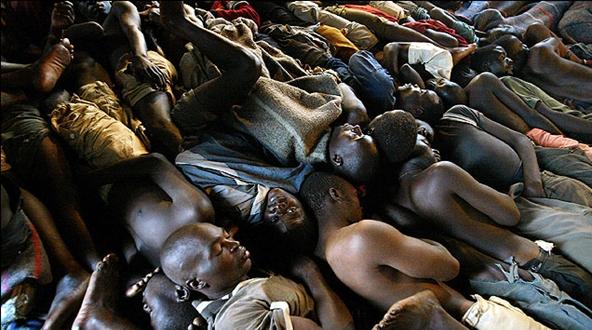
Article(s)
Malawi – five years after abolishing the mandatory death penalty
By Emile Carreau, on 19 September 2012
In 2007 abolitionists celebrated when the High Court of Malawi abolished the mandatory death penalty. In what become known as the Kafanteyeni ruling the mandatory death penalty was deemed by the bench as unconstitutional as it amounts to an arbitrary deprivation of life, denies an accused the right to a fair trial and the right to be free from inhuman and degrading treatment.
2012
Malawi
Document(s)
Detailed factsheet – World Day 2024 & 2025
By World coalition against the death penalty, on 11 July 2024
2024
Campaigning
World Coalition
frMore details Download [ pdf - 485 Ko ]
- Document type Campaigning / World Coalition
- Available languages Fiche d'information détaillée - journée mondiale 2024 & 2025
Document(s)
The Physician in the Execution Chamber: No Such Thing as the Normal Pain of Dying
By Joel Zivot, California Western International Law Journal , on 1 February 2024
2024
Academic Article
United States
More details See the document
Published in October 2023.
For capital punishment to be lawful in the United States of America, it must occur without cruelty, a requirement of the traditional reading of the Eighth Amendment. There has never been a consensus on what form of execution is cruel, although some historic practices are shockingly barbaric to modern sensibilities— I think of the “draw and quarter” technique. The family of the murdered victim may fairly argue that the murderous behavior should be the minimum degree of cruelty meted out. But western countries eschew that standard and seek moderate forms, partly to deter by punishment and partly as a forfeit of the murderer’s life for the victim’s life when execution is allowed in that state. Certainly, there is substantial support for continuation of execution in states that allow it. The judges must be respectful of that, but still, they must respect the 8th amendment. At present, the prevalent method of execution in the United States is “lethal injection” using injectable medicines in very high doses that are repurposed to kill the prisoner. Because it is impossible to ask an executed individual about the cruelty experienced during their own death, the state instead relies on the empathy of witnesses to gauge the cruelty of a prisoner’s execution. Lethal injection was expected to be a bloodless execution and aimed to eliminate the visible appearance of cruelty, sometimes through the use of a paralytic.
- Document type Academic Article
- Countries list United States
Document(s)
Women and The Death Penalty in Kenya: Essays on the Gendered Perspective of the Death Penalty
on 2 February 2024
2024
NGO report
Death Row Conditions
Fair Trial
Gender
Kenya
Women
More details See the document
This publication seeks to make visible the gender and intersectional discrimination faced by women in the judicial process leading to the death penalty. Through the various articlesin this publication, the authors bring to light the reality of women facing the death penalty through a different lens.
The first author, Shekinah Bright Kiting’a, in making a compelling case for abolition of the death penalty, explores how the death penalty uniquely affects women in the context of motherhood. Further, she highlights the rights and well-being of the children affected by their mothers’ death sentences, revealing flaws in our legal and ethical systems. With the overall aim of advocating for its abolition due to its significant impact on both parenthood and children’s rights, her article seeks to push for reforms that honour motherhood and prioritize children’s well-being in these difficult circumstances.
Kenaya Komba dissects gender disparity in the judicial system by exploring the intersection of domestic violence and the death penalty. In making a case for a restorative approach to justice, her article analyses the impact of capital punishment on victims of domestic violence and the systemic injustice and biases they continue to grapple with. Her elaborate analysis of the Constitution of Kenya, 2010 and the Protection Against Domestic Violence Act, 2016, highlights the urgent need for reform in the legal system.
While Analyzing the role the media plays in shaping perceptions of women on death row, Patricia Chepkirui evaluates the implications of positive and negative media portrayals of such women by highlighting the ethical responsibilities of media in the coverage of women on death row cases. The article ultimately underscores the significance of responsiblemedia coverage in ensuring that media exposure of cases of women on death row is fair,balanced, and respectful of their rights and dignity.
Alex Tamei delves into the intricacies of abuse, gender-based violence, and trauma as mitigating factors in death penalty sentencing for women. His article comparatively analyses two Kenyan cases of murder in retaliation to intimate partner violence, seeking to shed light on the plight of victims of gender-based violence. The article effortlessly brings out the nexus between the death penalty and intimate partner violence and makessolid recommendations for change.
The fifth author, Patience Chepchirchir, delves into the nexus between psychological abuse and provocation. Through her article, she brings out the scope of psychological abuse while focusing on the linkage between emotional abuse and provocation and how the same can be considered as mitigating factors. Through an elaborate analysis of case law, she makes a case for psychological abuse of women as a mitigating circumstance during sentencing.
Stella Cherono’s article reflects on the intersectional discrimination faced by women in the criminal trial process leading to death row. The article highlights the complex and overlapping forms of discrimination women experience during the pretrial, trial and sentencing stages. Through her comprehensive analysis of gendered pathways to offending and imprisonment, she challenges how society perceives discrimination.
Loraine Koskei Interrogates the emerging jurisprudence on Intimate Partner Violence.Her article lays out the gendered factor in the commissioning and sentencing of women convicted of murder and offers possible recommendations.
- Document type NGO report
- Countries list Kenya
- Themes list Death Row Conditions / Fair Trial / Gender / Women
Article(s)
Support grows for Davis as his execution is stayed
on 26 October 2008
Troy Davis’s execution was stayed on October 23, four days before he was scheduled to die, as activists took action on his behalf all over the world.
2008
United States

Article(s)
Groundbreaking Survey Reveals Iranians’ Attitudes Towards the Death Penalty
By GAMAAN Institute / World Coalition Against the Death Penalty, on 23 October 2020
This survey, conducted by the GAMAAN Institute between the 3rd and the 11th of September 2020, includes responses from about twenty thousand people living inside Iran.
2020
Iran (Islamic Republic of)
Public Opinion

Article(s)
Highest execution numbers in Iran in 10 years
By Mahmood Amiry-Moghaddam, on 13 March 2012
Iran Human Rights has published its annual report on the death penalty in Iran in 2011. IHR’s international spokesperson Mahmood Amiry-Moghaddam says the Iranian authorities are keeping the number of executions high because they use the death penalty as a political tool.
2012
Drug Offenses
Iran (Islamic Republic of)
Juveniles
Women
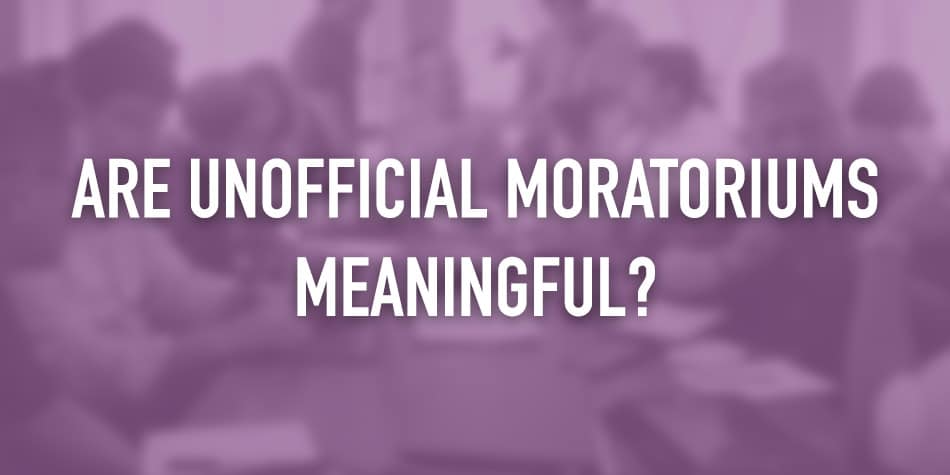
Article(s)
Importance of understanding phases of abolition: the danger of ‘abolitionist in practice’
By Venus Aves, Bronwyn Dudley, and Shahindha Ismail, on 6 November 2023
In July 2023, the World Coalition hosted a seminar in Malaysia in the context of its “Countries at Risk” project. This subject of informal moratoriums solicited much interest as participants considered preventative strategies for stopping a return to the death penalty, and what environmental factors need to be considered to implement those strategies. This article […]
2023
Moratorium
Article(s)
Global outrage at Iranian juvenile execution
on 6 May 2009
Human rights organisations and governments worldwide have slammed the Iranian authorities for the illegal execution of Delara Darabi, a young woman convicted of a murder committed when she was 17.
2009
Innocence
Iran (Islamic Republic of)
Juveniles
Article(s)
World Day campaign launched!
on 13 August 2007
The countdown to the fifth World Day Against the Death Penalty on October 10 has begun. It will focus on the proposed resolution against capital punishment to be discussed in the UN this autumn.
2007
Moratorium
Article(s)
Youths must stand up against the death penalty!
on 17 September 2007
The Federation of Liberal Students (FEL), a Belgian political organisation, has just joined the World Coalition. FEL president Arnaud Van Praet explains his organisation’s mobilisation against capital punishment.
2007
Belgium
Article(s)
Abolition in the US: what role for overseas activists?
on 3 February 2008
As part of its 2008 annual conference, the National Coalition to Abolish the Death Penalty (NCADP) organised a brainstorming session to explore the question: “How can the international community support us in our efforts to abolish the death penalty in the US?”
2008
Clemency
Public Opinion
United States

Article(s)
Notes on the Supreme Court Trial in the Chen Fu-hsiang Case: Life or Death Debates in the Style of ChatGPT
By Lin Tzu-Wei (Legal Director of the Taiwan Alliance to End the Death Penalty), on 14 July 2023
Article first published in april on TAEDP’s website Return of life or death debates Following the previous oral arguments on death penalty cases at the Supreme Court in 2021, another life or death debate took place in April this year. This time, I had the opportunity to attend the oral arguments of the “Chen Fu-hsiang […]
2023
Taiwan
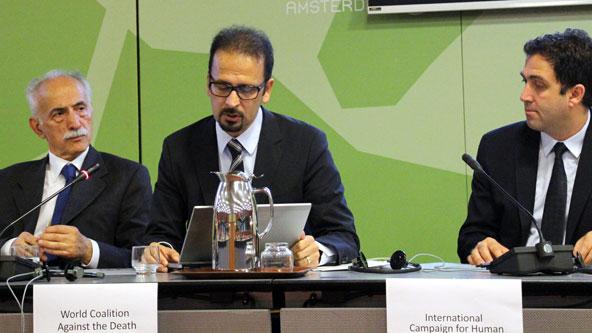
Article(s)
NGOs join forces to tackle capital punishment at Iran’s rights review
By Thomas Hubert, on 30 October 2014
Several World Coalition members are among organisations co-ordinating their efforts to help the international community put pressure on Iran over its use of the death penalty.
2014
Iran (Islamic Republic of)
Article(s)
1,700-mile “Walk4Life” across the US
on 13 March 2008
American hip-hop artist Andre Latallade, also known as Capital-“X”, will walk 1,700 miles from New Jersey to Texas from March 31 to campaign against the death penalty.
2008
Drug Offenses
United States

Article(s)
Justice ministers meet on the eve of Cities Against the Death Penalty
By Elizabeth Zitrin (World Coalition vice-president), in Rome, on 1 December 2013
More than 20 ministers of justice met in Rome for the annual conference on the abolition of the death penalty organised by the Community of Sant’Egidio and heard harrowing testimonies from courageous activists.
2013
Afghanistan
Belarus
Costa Rica
El Salvador
Italy
Philippines
Senegal
Switzerland
United States
Article(s)
FIDH report on Vietnam: an update on death penalty statistics
on 19 September 2010
The FIDH and the Vietnam Committee on Human Rights released a new report, From Visions to Facts: Human Rights in Vietnam under its Chairmanship of ASEAN, on 16 August 2010.
2010
Drug Offenses
Moratorium
Viet Nam
Viet Nam
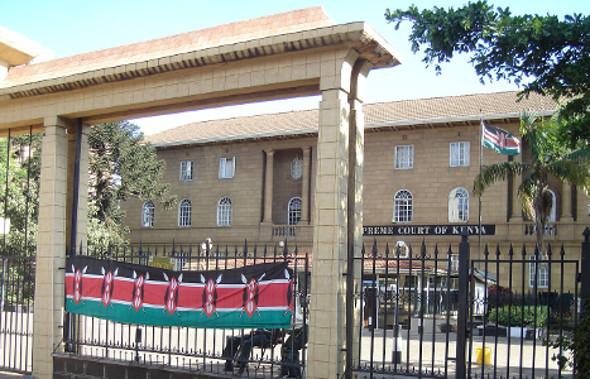
Article(s)
The Supreme Court of Kenya declares the mandatory death penalty unconstitutional
By Thalia Gerzso, on 23 January 2018
On December 14, 2017, the Supreme Court of Kenya declared the mandatory death penalty unconstitutional. This landmark decision puts an end to several years of uncertainties and constitutes an additional step towards the abolition of the death penalty in the country.
2018
Kenya
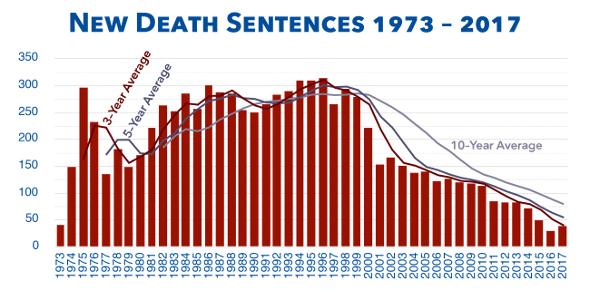
Article(s)
U.S. sees second fewest death sentences and executions in 25 Years
By Death Penalty Information Center, on 22 March 2018
Public support for the death penalty drops to 45-Year low as four More death-row prisoners Exonerated in 2017. “The Death Penalty in 2017: Year End Report” is now available.
2018
United States
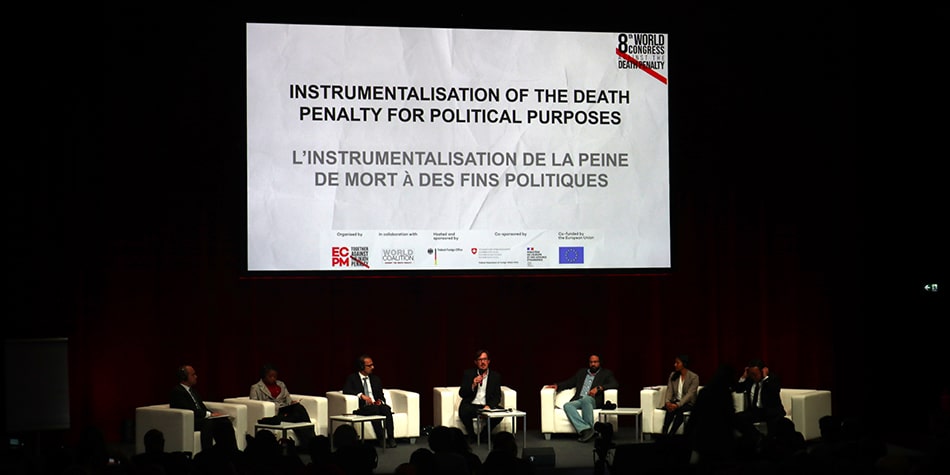
Article(s)
How the Death Penalty is Politicized: A Reflection on the 8th World Congress Against the Death Penalty
By Dunia Schaffa, on 27 January 2023
During the 8th World Congress Against the Death Penalty, in Berlin Germany, the phrase “the death penalty is being used as a political tool” was used frequently – in panels, in round tables, in speeches, even amongst the participants getting a coffee in between Congress events.
2023
Iran (Islamic Republic of)
United States
Article(s)
What now for Mumia?
on 28 April 2008
On 27 March, a US federal appeals court overturned Mumia Abu-Jamal’s death sentence, but not his conviction for murder. His lead counsel Robert R. Bryan gives his reaction to the ruling and the next steps in America’s most high-profile capital case.
2008
Fair Trial
United States
Article(s)
State-sponsored report finds California’s death penalty is “dysfunctional”
on 9 July 2008
A recent report from a far-reaching commission established by the Californian senate on the administration of capital punishment in the state concluded that “the system is broken”.
2008
Innocence
United States
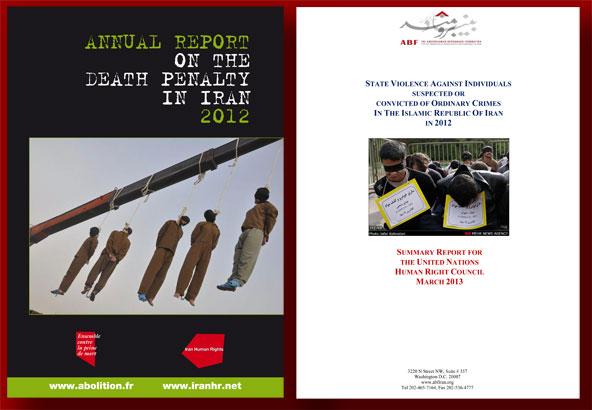
Article(s)
“Iran kills for possession of less than 50g of drugs”
By Thomas Hubert, on 9 April 2013
Annual reports published by two World Coalition member organizations of Iranian exiles expose the disproportionate use of the death penalty in Iran, mostly against drug users and traffickers.
2013
Drug Offenses
Iran (Islamic Republic of)
Article(s)
Taiwan activists battle in death penalty-triggered political crisis
on 19 March 2010
After Taiwan’s justice minister was forced to step down for not signing execution warrants, local and international abolitionists rushed in to restore a balanced debate and protect the country’s 44 death row inmates.
2010
Moratorium
Public Opinion
Taiwan
Taiwan
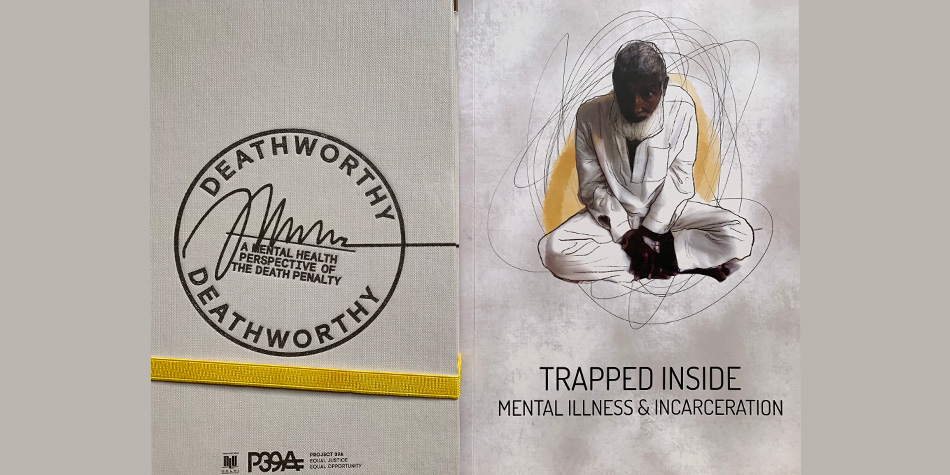
Article(s)
Over 8,000 people on death row in South Asia
By Aurelie Placais, staff, on 3 May 2022
With few executions but one of the biggest death rows in the world, South Asia is at a crossroad. Recent publications explore mental health on death row and social and economic background of people sentenced to death in Bangladesh, India, the Maldives, Pakistan and Sri Lanka.
2022
Bangladesh
Death Row Conditions
India
Maldives
Mental Illness
Pakistan
Sri Lanka
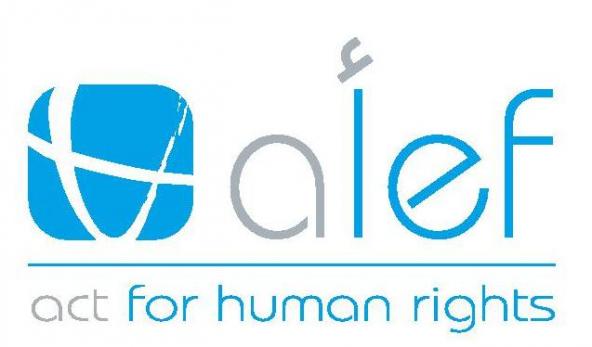
Member(s)
Act for Human Rights (ALEF)
on 30 April 2020
Act for Human Rights previously know as “Association libanaise pour l’éducation et la formation” core mandate is Monitoring and Advocacy. Its main concern are Human Rights issues, thus the organization has been advocating against death penalty. Currently our project activities are the following: Death Penalty Abolition Activities in Lebanon- ALEF – act for human rights […]
2020
Lebanon
Article(s)
World Congress ends with words of hope
on 28 February 2010
Powerful words by the speakers of the solemn ceremony that concluded the 4th World Congress Against the Death Penalty gave hope to the participants as they prepared to head home.
2010
Switzerland
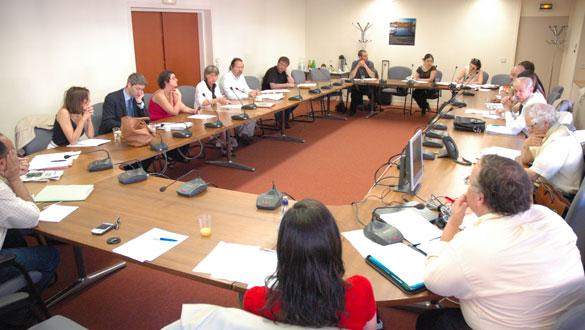
Article(s)
Statutes of the World Coalition Against the Death Penalty
on 26 June 2011
Amended by the General Assembly on June 26, 2011
2011
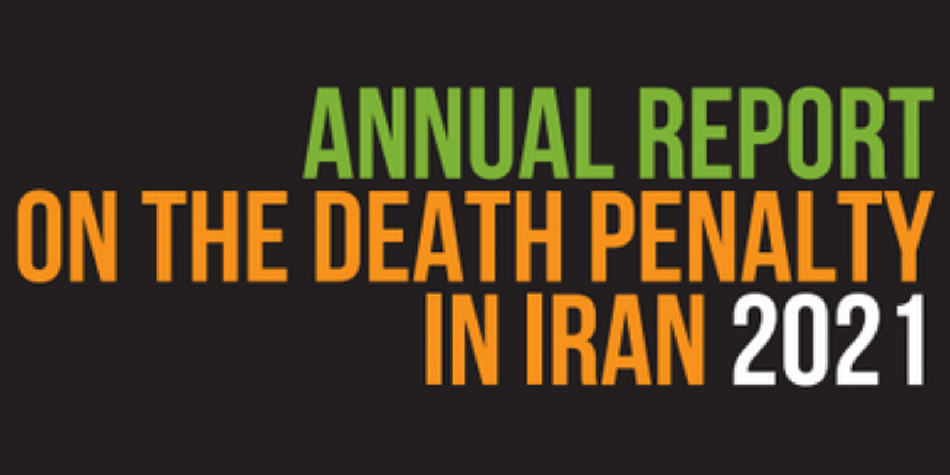
Article(s)
Death Penalty in Iran: Sharp Increase in Executions
By Anissa Aguedal, on 10 June 2022
An alarming situation On 28 April 2022, Iran Human Rights (IHR) and Ensemble contre la peine de mort (ECPM) released their 14th Annual Report on the Death Penalty in Iran, revealing an increase in the number of executions in 2021. At least 333 people were executed and 83,5% of these executions were not announced by […]
2022
Iran (Islamic Republic of)
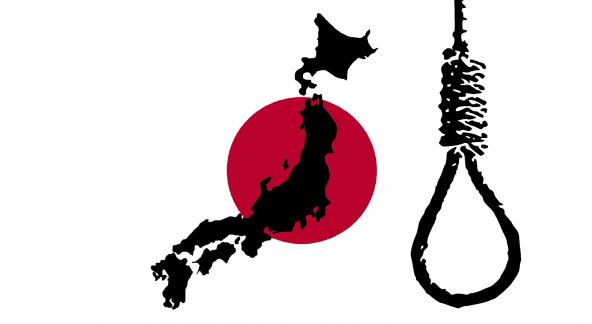
Article(s)
Regarding the execution in Japan of seven people
By World Coalition Against the Death Penalty, on 10 July 2018
STATEMENT – WORLD COALITION AGAINST THE DEATH PENALTY The World Coalition Against the Death Penalty would like to express its sympathy and support to all courageous anti-death penalty activists who have fought bravely to try to prevent the executions of seven people in Japan on the same day, on 6 July. The World Coalition calls […]
2018
Japan
Article(s)
Mongolian president calls for abolition
on 18 January 2010
In a vibrant speech before the parliament on January 14, President Elbegdorj Tsakhia of Mongolia developed all the arguments put forward by the abolitionist community.
2010
Clemency
Mongolia
Moratorium
Document(s)
The Death Penalty in 2023: Year End Report
By The Death Penalty Information Center (DPIC), on 25 January 2024
2024
NGO report
Public Opinion
United States
More details See the document
Published on December 01, 2023.
Innocence cases dominated much of the media’s attention on death penalty cases in 2023. While these prisoners were largely unsuccessful in the courts, there was unprecedented support for their claims from state legislators, prosecutors, judges, and other elected officials, some of whom declared themselves newly disillusioned with use of the death penalty in their state. This year is the 9th consecutive year with fewer than 30 people executed (24) and fewer than 50 people sentenced to death (21, as of December 1). The 23 men and one woman who were executed in 2023 were the oldest average age (tied with 2021) and spent the longest average number of years in prison in the modern death penalty era before being executed. As in previous years, most prisoners had significant physical and mental health issues at the time of their executions, some of which can be attributed to the many years they spent in severe isolation on death row. Continued difficulties obtaining lethal injection drugs led some states to explore new, untested methods of execution or revive previously abandoned methods. Other states enacted or continued pauses on executions while the state’s method of execution was studied.
- Document type NGO report
- Countries list United States
- Themes list Public Opinion
Document(s)
Intiatives World Day 2005
By World coalition against the death penalty , on 10 October 2005
2005
Campaigning
Trend Towards Abolition
frMore details See the document
Intiatives World Day 2005
- Document type Campaigning
- Themes list Trend Towards Abolition
- Available languages Initiatives journée mondiale 2005
Document(s)
Death Penalty Politics: The Fragility of Abolition in Asia and the Pacific
By Mark Finnane, Mai Sato and Susan Trevaskes, on 1 September 2022
2022
Academic report
More details See the document
Despite a steady increase worldwide in the number of states that have abolished the death penalty, capital punishment remains a troubling presence in the international order. The world’s leading powers in terms of economics and population include the retentionist states of China, India, Japan and the United States of America (USA). It seems there is no linear path to abolition, and its achievement is indeterminate. Yet, in international human rights law, death penalty abolition is a powerful norm embraced by half the countries across the world. While the majority of death penalty research has emanated from and focuses on the USA, well over 90 per cent of global executions occur in Asia, which lags behind the global trend towards abolishing the death penalty. Our symposium and this collection seek to bring perspectives from a variety of disciplines and methods—historical, legal, sociological, comparative— to bear on the questions of retention and abolition in a variety of jurisdictions and time periods.
This article was first published in Crime Justice Journal: https://www.crimejusticejournal.com/issue/view/119
- Document type Academic report
Document(s)
The Death Penalty in 2022: Year End Report
By Death Penalty Information Center, on 16 December 2022
2022
NGO report
United States
More details See the document
In a year awash with incendiary political advertising that drove the public’s perception of rising crime to record highs, public support for capital punishment and jury verdicts for death remained near fifty-year lows. Defying conventional political wisdom, nearly every measure of change — from new death sentences imposed and executions conducted to public opinion polls and election results — pointed to the continuing durability of the more than 20-year sustained decline of the death penalty in the United States.
The Gallup crime survey, administered in the midst of the midterm elections while the capital trial for the 2018 mass shooting at Marjory Stoneman Douglas High School in Florida was underway, found that support for capital punishment remained within one percentage point of the half-century lows recorded in 2020 and 2021. The 20 new death sentences imposed in 2022 are fewer than in any year before the pandemic, and just 2 higher than the record lows of the prior two years. With the exception of the pandemic years of 2020 and 2021, the 18 executions in 2022 are the fewest since 1991.
- Document type NGO report
- Countries list United States
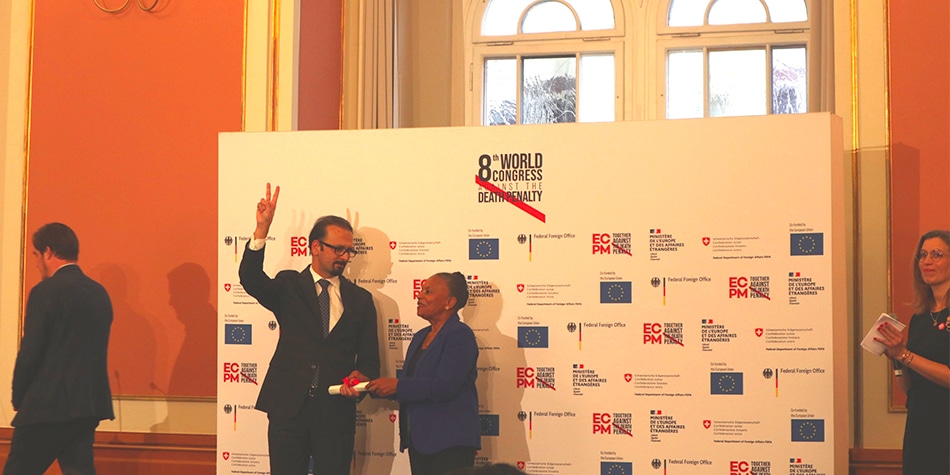
Article(s)
A Very Moving and Inspiring Closing Ceremony
By Dunia Schaffa, on 30 January 2023
The Closing Ceremony of the 8th World Congress celebrated people who play an immense role in the process of the abolition of the death penalty, with an awards ceremony and a tribute.
2023
Trend Towards Abolition

Article(s)
Malawi Supreme Court Reverses Abolition Decision
By World Coalition Against the Death Penalty, on 18 August 2022
On 30 April 2021, the World Coalition published the following article on the abolition of the death penalty in Malawi. Since its publication, the abolitionist status of the country has changed. This article has been updated below. —————————-
2022
Malawi
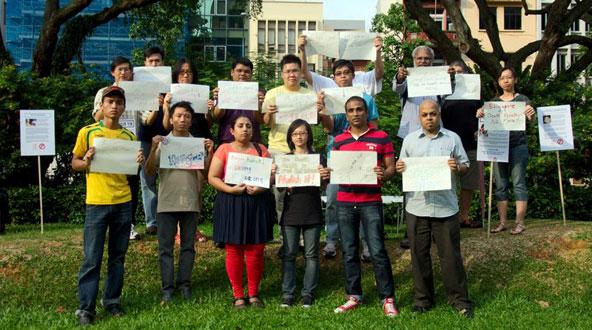
Article(s)
Migrant workers facing capital punishment show need for alternative sentences
By Think Centre, on 26 April 2012
Four Singapore-based organisations denounce the high risk of miscarriage of justice in recent death sentences handed down on poor immigrants and calls for the abolition of the death penalty in the city-state.
2012
Cruel, Inhuman and Degrading Treatment and Punishment
Moratorium
Singapore
Document(s)
Facts and Figures 2013
on 10 October 2013
2013
Campaigning
Trend Towards Abolition
aresMore details Download [ pdf - 115 Ko ]
Facts and Figures world day against the death penalty 2013
- Document type Campaigning
- Themes list Trend Towards Abolition
- Available languages Faits et chiffres 2013PENA DE MUERTE HECHOS Y DATOS

Article(s)
Ratification of abolition treaties gathers pace in 2012
By Aurelie Placais, on 20 March 2012
The ratification campaign for the international protocols on the death penalty is on a roll with three new ratifications since January.
2012
Angola
Bolivia (Plurinational State of)
Cambodia
Honduras
Kyrgyzstan
Latvia
Mongolia
Poland

Article(s)
Progress and impediments on path to abolition in U.S.
By Russ Feingold & Christopher Wright Durocher, on 3 April 2024
When President Biden won the 2020 election, he became the first successful U.S. presidential candidate to publicly oppose the death penalty.
2024
United States
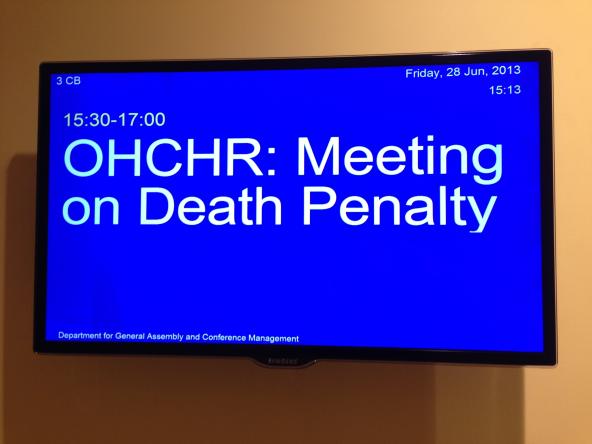
Article(s)
United Nations panel hears from innocent sentenced to death
By Maria Donatelli, on 4 July 2013
World Coalition members and a man who spent 18 years on death row for murders he did not commit joined UN Secretary General Ban Ki-Moon for a debate on capital punishment.
2013
Innocence
United States

Article(s)
More than 1,000 sentenced to death in Iraq in 8 years
By Dr Nasr Abbood, on 1 March 2012
The Iraqi institutions established after the US-led invasion and the fall of Saddam Hussein have reinstated the death penalty and extended its scope since 2004. In this op-ed article, Iraqi Coalition Against the Death Penalty president Nassr Abood calls for alternative sentences and for a strong stance from the international community.
2012
Drug Offenses
Iraq
Iraq
Terrorism
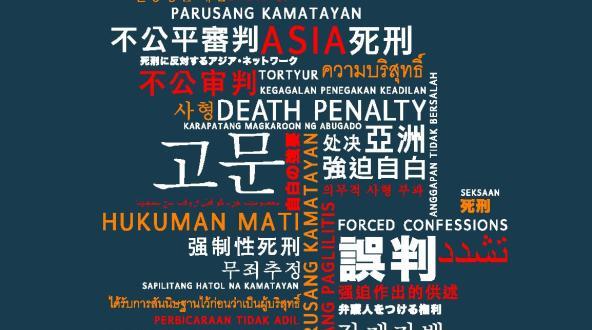
Article(s)
Asia: Stop executions and unfair trials
By ADPAN, on 6 December 2011
A hard-line group of Asian countries are defying the global trend against the death penalty and putting to death thousands of people after unfair trials every year, the Anti-Death Penalty Asia Network (ADPAN) said today in a new report.
2011
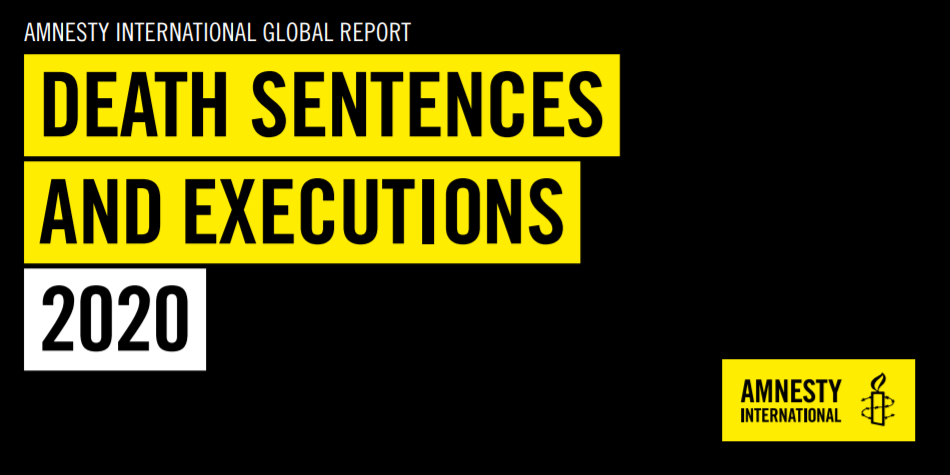
Article(s)
Editorial: Amnesty International releases annual report
By Amnesty International, on 27 May 2021
On 21 April, we published our annual report on the global use of the death penalty, which shows that in 2020 the world got one step closer to freeing itself from this cruel punishment.
2021
Cruel, Inhuman and Degrading Treatment and Punishment
Death Row Conditions
Public Opinion
Document(s)
More Indicators of the Falling Support for the Death Penalty
By Talia Roitberg Harmon and Michael L. Radelet, California Western International Law Journal , on 1 February 2024
2024
Academic Article
United States
More details See the document
Published on October 12, 2023.
In the seminal Furman v. Georgia case from 1972, the U.S. Supreme Court (in effect) invalidated all death penalty statutes then inforce in American jurisdictions. After many states went back to their legislative drawing boards, some of the revised statutes were approved by the Court in 1976. At that time, Gallup found that 66 percent of the American public supported the death penalty, while 26 percent stood opposed. While support grew to 80 percent in 1994, a recent Gallup Poll from October 2022 shows that this figure has dropped to 55 percent. Recently, only 36 percent of Americans still support the death penalty given the alternative punishment of life imprisonment.
- Document type Academic Article
- Countries list United States
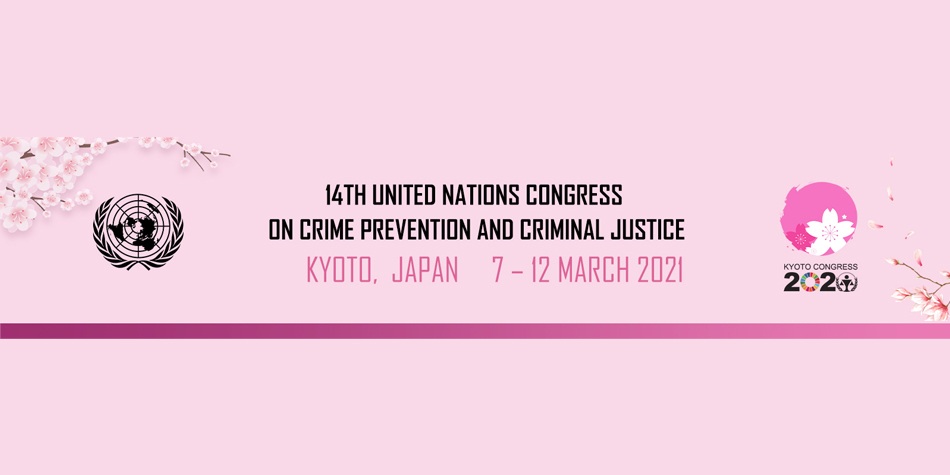
Article(s)
Recapping the UN Crime Congress in Kyoto
By Teppei Ono, CPR, on 15 March 2021
The United Nations Congress on Crime Prevention and Criminal Justice was held in Kyoto, Japan from 7 to 12 March 2021.
2021
Public Opinion
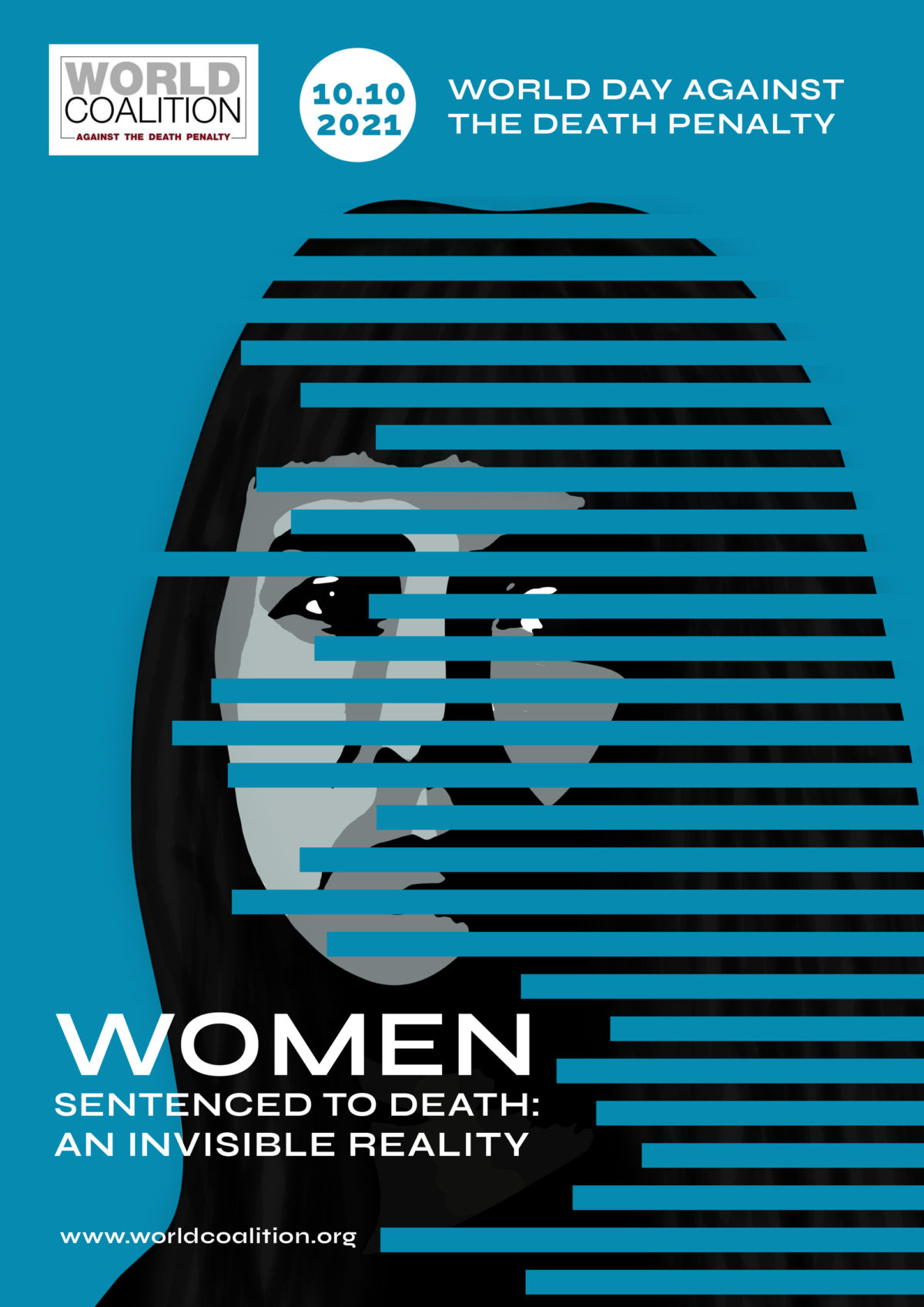
19th World Day Against the Death Penalty – Women and the death penalty, an invisible reality
on 10 June 2021
On 10 October 2021, the World Day will be dedicated to women who risk being sentenced to death, who have received a death sentence, who have been executed, and to those who have had their death sentences commuted, exonerated, or pardoned.
2021
Women

Article(s)
Advocating for the Adoption of the Draft Protocol by the African Union: A Step in the Right Direction for Abolition in Africa
By Florence Venunye Ayivor-Vieira and Hervé Nsambimana, on 15 December 2023
Advocacy in Addis-Ababa On the 10 October 2023, the FIACAT (International Federation of ACATs), and the World Coalition Against the Death Penalty, represented by Ms. Florence Ayivor-Vieira of ACAT-Ghana and Mr. Hervé Nsabimana of CODHAS (Centre d’observation des Droits de l’Homme et d’Assistance Sociale), Co-Chairpersons of the World Coalition’s working group on the draft protocol […]
2023
Trend Towards Abolition

Article(s)
Abolition of the death penalty must be an integral part of crime prevention programmes and criminal justice reforms
By Amnesty International, on 5 March 2021
As the Fourteenth United Nations Congress on Crime Prevention and Criminal Justice is about to begin in Kyoto, Japan, the undersigned organizations urge the Economic and Social Council (ECOSOC) and its subsidiary bodies, including the UN Office on Drugs and Crime (UNODC); and all UN member states, including the Congress host country Japan, to make […]
2021
Public Opinion

Article(s)
Sharing best practices on ratifying the UN treaty to abolish the death penalty
By Aurélie Plaçais, on 25 September 2011
Belgium and the United Nations’ human rights office have held a panel discussion to promote efforts in favour of the strongest international instrument against capital punishment.
2011
Belgium
Mongolia
Moratorium
Russian Federation

